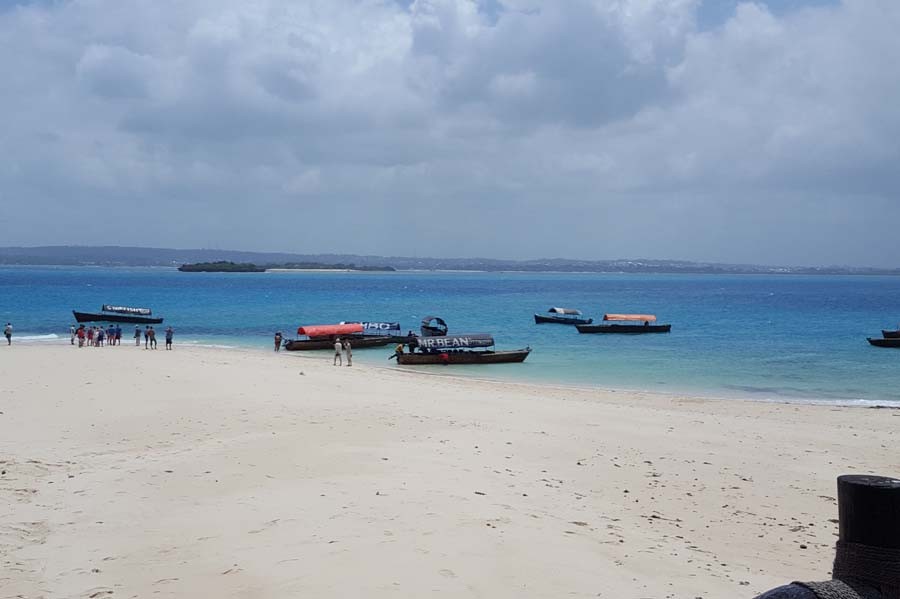
A holiday in a dreamed-about location, with the mundanity of everyday life always a few paces behind

Why do we vacation? What counts as enjoyment when we are on holiday? Although this article was originally intended as a description of a brief 7-day-long venture to Zanzibar in February this year, I was unable to separate my memory of my holiday from events that normally do not make it into the retelling of holiday stories: toothache, stomach pain, or just the happy discovery of tomatoes and mangoes for breakfast. What follows, therefore, is a short meditation on the clash of vacation dreams with everyday life.
Whether due to lower ticket costs globally, or increased disposable incomes for a very specific professional class, the incidence of Pakistani tourism--both domestic and international--has sharply increased over the past few years. The dream vacation ideal has expanded, from honeymooners on idyllic beaches or nuclear families making obligatory treks to Disneyworld, to a new segment of urbane young Pakistanis who travel to Thailand, Turkey, Sri Lanka or Europe with a group of friends or even, occasionally, by themselves.
Whether this is just to take breaks from work and the daily grind, see new sights and sounds in a global context where ‘culture’ has come to mean the consumption of specific sights or experiences, or for the much romanticised trope of travelling to ‘discover’ oneself -- Eat Pray Love-style, (or even all three) the expectations and ideals attached to the vacation have rapidly risen recently. And as they have done so, so have the pressures.
The dream vacation is a tense affair, particularly in the planning stages and before take-off, where the fear is that something -- or everything -- can go terribly, horribly wrong at any stage. At any point, the possibility of real disaster, striking to ruin the dream in a truly spectacular fashion, is always present. Personal health can fail. Surprising storms or other weather conditions can ground flights and cancel any outdoor activities. Political tensions and turmoil -- often carefully papered over for visitors in tourism-dependent economy at the expense of the locals, and thus happily ignored by those visitors -- can suddenly reach breaking point or catastrophe.
In Zanzibar’s beautiful Stone Town, surrounded by vacationers like myself, it was easy to ignore the graffiti on the wall railing against unemployment and the mainland government of Tanzania. There was, of course, no danger of imminent revolution but it was also easy to forget that the island had a life and rhythm of its own outside the demands of the tourist cycle. The way our expectations of vacation as escape are structured work to blind us to the conditions of those on to whom we as travellers place the burden of escape.
The structure of the dream vacation -- planned for, even yearned for, months or years in advance, holding out the promise of escape from whatever one’s banal present conditions are -- is also set up for failure in far less spectacular ways as well however.
Mundane, everyday lives are far less exciting and much more draining -- this is, after all, a prime reason to go on holiday. Yet mundanity also has a way of following us, a few paces behind but always in danger of catching up. The danger of this is in having the escape fail -- of going to dreamed-about, unfamiliar locales only to find that something essential has gone missing in ‘real life’, rendering it unfamiliar too: a friendship has fallen apart over petty differences; a visa to extend the trip has been denied as a reminder of the ugliness and precarity of borders that privilege (if not our passports) has shielded one from; money has run out.
Everyday life can be even more insidious -- it can seize or take over the entire holiday and still render it pleasant. The vacation is pleasant, the dream is gone.
On my second last day in Zanzibar, the ocean breeze in my hair, the balmy tropical sun warming my skin, I went from store to store squinting at unfamiliar pills and trying to desperately find medicated toothache relief. The toothache began in Karachi three hours before my flight; I floated through packing on a cloud of anxiety and pain and bought a box of painkillers at the airport pharmacy. Four days of eating incredible food with only one side of my mouth later, I ran out. Where I should have been strolling through one of Stone Town’s museums, I was in the nearby market trying to translate my Pakistani medicines into whatever I could get without a prescription on such short notice that would stop my face from throbbing.
I cannot pretend visiting pharmacies gave me any particular insight into local life or culture, but nor did this ruin my holiday. Instead, with time as the anxieties that gave rise to the need for a perfect vacation or escape at that particular time fade away, the small, incongruous pockets of everyday reality tucked into the folds of my memory are what truly make it stand out.